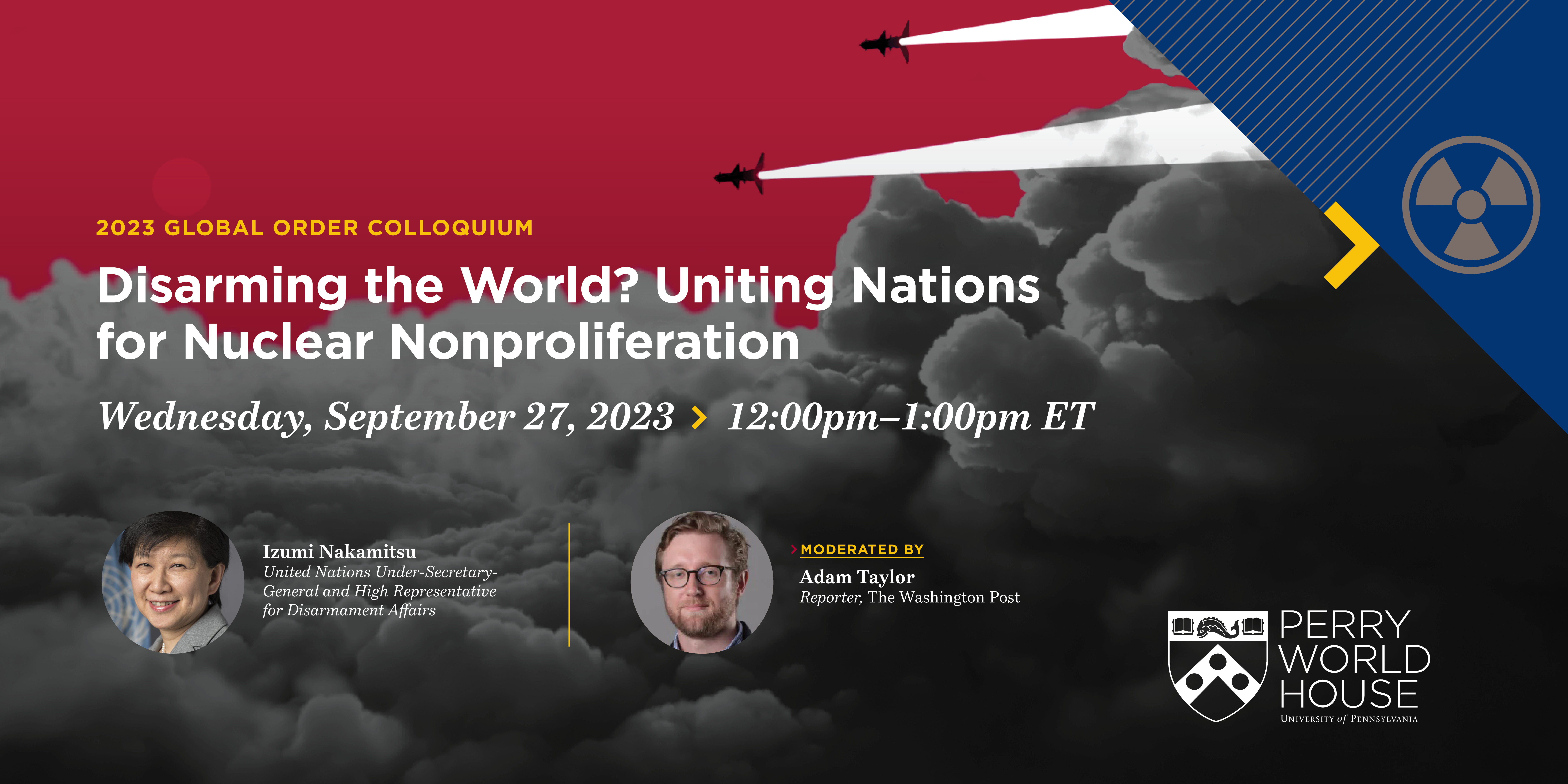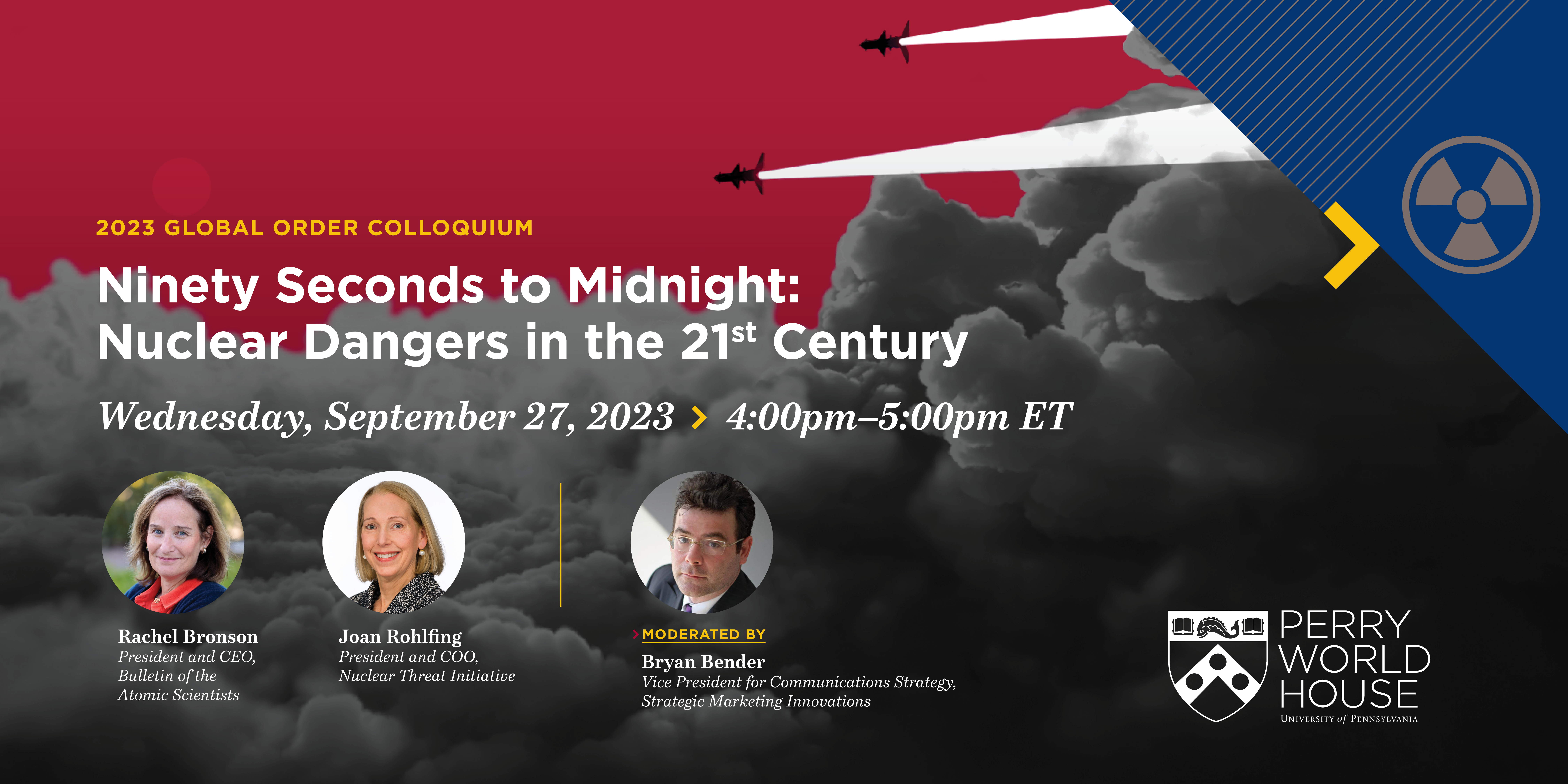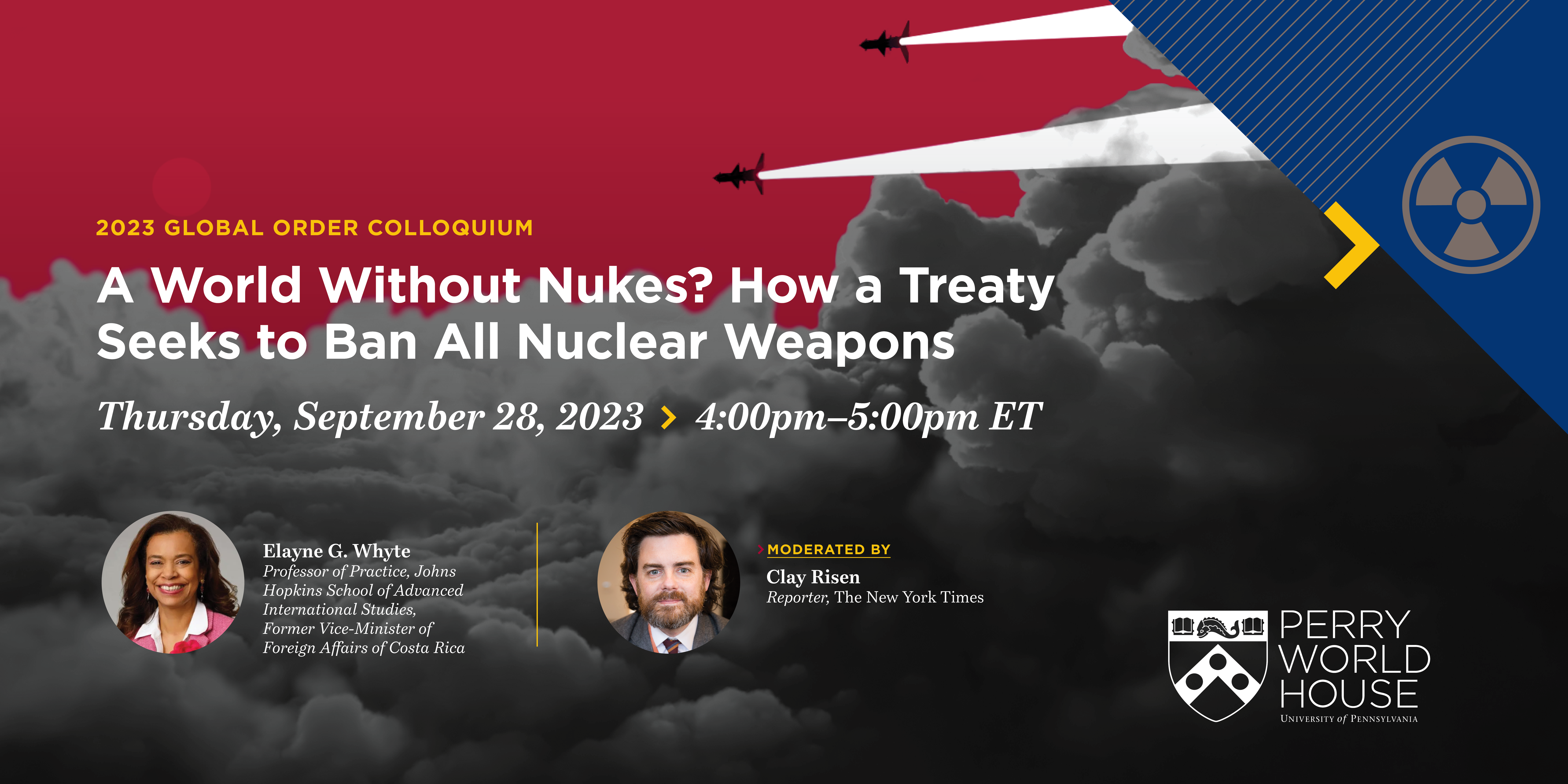Wednesday, September 27, 2023 A New Age of Nuclearity? Great Powers and Greater Consequences
Basic Page Sidebar Menu Perry World House
Nuclear issues have been a major part of foreign policy conversations since 1945. Today, Vladimir Putin’s nuclear threats against Ukraine, China’s modernization of its nuclear arsenal, and more pressures in the Indo-Pacific region highlight the need for conversation around the future of nuclear weapons.
How will the world manage nuclear threats amid growing geopolitical tension, climate change challenges, and international conflict? The Perry World House 2023 Global Order Colloquium will explore how nuclear threats can be deescalated, if nuclear weapons can be banned worldwide, and more.
Read the colloquium report and thought pieces from participants here.

REGISTER HERE
Can the United Nations successfully facilitate nuclear disarmament? That goal is the mandate of the United Nations Office for Disarmament Affairs (UNODA), a department tasked with supporting governments in disarmament and non-proliferation across a varied and complex foreign policy landscape. While the 2017 adoption of the Treaty on the Prohibition of Nuclear Weapons marked a significant victory for multilateralism, the challenges of advancing disarmament are vast. The success of bilateral arms control agreements, such as New START between the United States and Russia, are in jeopardy. Other countries are seeking to further develop or modernize their nuclear arsenals. The world needs multilateral institutions to reduce the possibility of nuclear cataclysm, and UNODA does so by supporting dialogue and strengthening global norms against the use, possession, and testing of nuclear weapons with the ultimate goal of their elimination.
Given the tensions of today, where will UNODA find the support it needs to guide countries away from the development and modernization of their nuclear arsenals? Can it lean on nuclear-armed states, like the United States, to improve global nuclear norms? What power might non-nuclear states wield to press for nuclear disarmament?
Join Perry World House for its 2023 Global Order Colloquium on A New Age of Nuclearity? Great Powers and Greater Consequences, during which Under-Secretary-General and High Representative for Disarmament Affairs Izumi Nakamitsu will address these questions and discuss how her office navigates and approaches disarmament issues across the UN system.

REGISTER HERE
The Doomsday Clock, a measure of how close humanity is to destroying itself, implies that we are closer to apocalypse than ever before. Russian nuclear threats continue in Ukraine, with a nuclear power plant trapped in the war zone. The suspension of New START and growing civilian stockpiles of plutonium are additional stressors. Meanwhile, great powers continue to expand and modernize their nuclear arsenals, further raising the stakes. The impacts of a nuclear accident, meltdown, or attack will reverberate around the world, undermining our societal foundations.
With so much at stake, can nuclear threats be deescalated? At a time of rising tension and competition, how might the world reduce risk and increase the trust needed to avert nuclear catastrophe? Can the Doomsday Clock be unwound? Join us as Penn alumna Rachel Bronson, President and Chief Executive Officer at the Bulletin of Atomic Scientists, and Joan Rohlfing, President and Chief Operating Officer of the Nuclear Threat Initiative discuss these urgent issues.
REGISTER HERE
Can countries around the globe band together to ban nuclear weapons? That is the goal of the Treaty on the Prohibition of Nuclear Weapons, an international treaty that outlaws nuclear armaments. Since its entry into force in 2021, 65 states have ratified the agreement, and it has become a touchpoint around which countries without nuclear arsenals are working to drive new norms. No nuclear powers have agreed to sign onto the treaty and destroy their nuclear arsenals to date. In fact, the nuclear great powers—China, Russia, and the United States—are modernizing their arsenals. Some European countries and US allies have curtailed the US’s ability to transport nuclear weapons on their territory as a result of the treaty’s adoption.
What did it take to negotiate a treaty that bans the weapons underwriting global (in)security and great power competition? Can states without nuclear might ever really set the global security agenda, and if so, what role might this treaty play? What will it take to completely eradicate nuclear weapons from the planet? What is an achievable goal for the future of the TPNW?
Join Perry World House for its 2023 Global Order Colloquium on A New Age of Nuclearity? Great Powers and Greater Consequences, where Elayne G. Whyte, the first President of the TPNW negotiations and Costa Rica’s former ambassador to the United Nations Geneva Headquarters, will discuss the past, present, and future of the TPNW.


